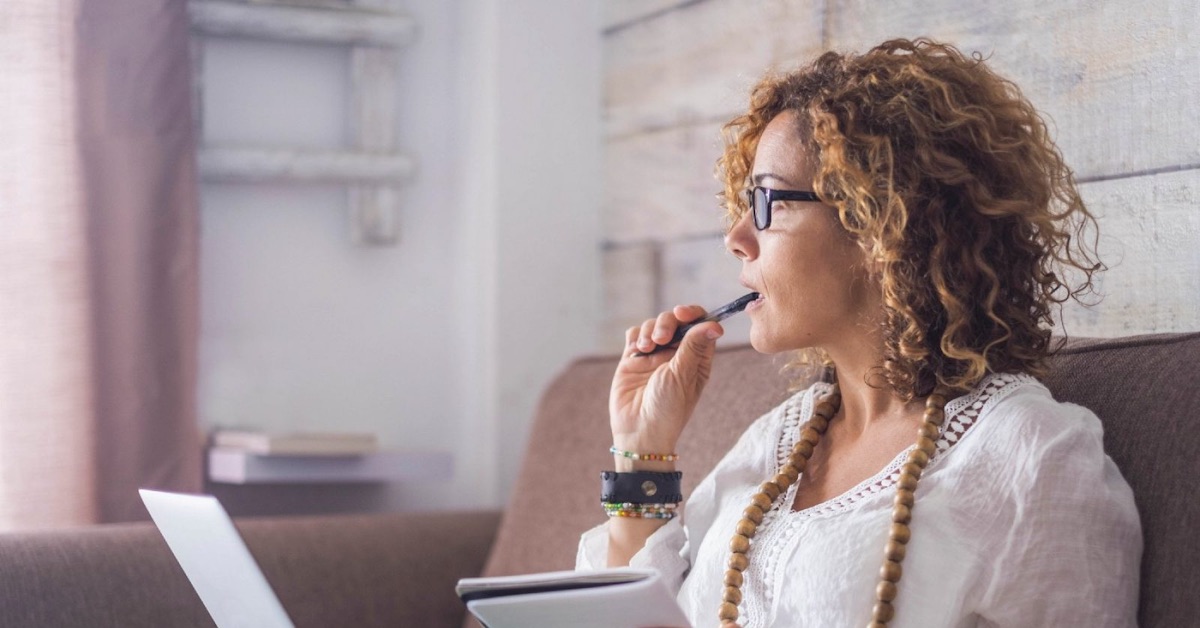The Sandwich Generation

By Susan Foosness
May 7, 2021
I’m feeling the squeeze. The special kind of pressure that women like me, in their 40’s, are experiencing. We’re parenting young children and now navigating care for aging parents. We’re balancing professional responsibilities that we have earned by “leaning in” and the emotional labor of marriage and family. We want it all, but we still can’t have it all. We’re the “sandwich generation” bearing the responsibility of caregiving for children, aging parents, and our families.
As another woman in this position described to me, it’s more like the “panini generation,” being pressed and squeezed from both sides. In 2020, the panini press basically caught on fire. Without childcare or schools, women stepped in to fill the gap in caregiving created by the pandemic. Women who straddle the line of being a parent, and caring for a parent, now feel twice the anxiety about protecting our most vulnerable family members from a deadly global pandemic.
Just like COVID-19, it’s hard to prepare for a squeeze like this. To go from wiping a snotty nose to making end-of-life care decisions in the same day. The emotional weight of caring for all of these people at once is heavy and falls unequivocally on women. Not to shortchange my four brothers, but when my parents came to live in North Carolina, it was my sister and I, the fifth and sixth child respectively, who stepped in to fill the role of care navigator, chauffeur, social support, housing coordinator, medical advisor, legal power of attorney, and emergency contact. My husband stepped up to provide more daily care for our toddler, but the pangs of “mom guilt” were not assuaged by FaceTime calls from the hospital bedside after my dad’s first stroke. And when I stood in the hallway of the nursing home, crying and frustrated with my dad’s care and condition, I thought “I can’t keep doing this.” But I did.
My privilege is not lost on me. Compared to millions of women in this sandwich generation, I have it really easy. My parents could afford to have in-home care, and when that was insufficient, pay for a private apartment in assisted living. My son could go to childcare and we had backup from another grandparent when it closed during the pandemic. I’ve had supportive employers that have allowed me to be flexible with my personal responsibilities and haven’t forced me to choose or pushed me out of the workforce like so many others.
COVID-19 has put some really difficult, uncomfortable conversations front and center of our lives. Who will watch my child if my husband and I both get sick? Does my 82-year-old mom want to be put on a ventilator? Who’s in our “bubble” and what relationships are we willing to sacrifice for safety? But in many ways, these are the types of questions that women like me, squeezed in the sandwich generation, have been asking and answering long before the pandemic.
So let me offer two pieces of helpful advice, from someone who’s been down this road: First, have “the talk” with your partner, siblings, and parents now. Talk about end-of-life care decisions and how you (and they) want to age and die with dignity and grace. The book, The Art of Dying Well, offers a helpful how-to guide for facing your own mortality and preparing to have a “good death”. Get your legal affairs (and your parents’) in order including a Will, a Living Will, and Healthcare Power of Attorney. There are often legal resources available through your employer or Employee Assistance Program (EAP), and lots of DIY online legal platforms to help you navigate the documents and the process for sharing them. Second, be gentle with yourself. Being sandwiched between the competing responsibilities of caregiving across different generations often means that the person in the middle — you — are neglected. Remember that in a crisis you put the oxygen mask on yourself before helping others. Seek out professional and informal support as early and often as you need to, especially from others who are sandwiched like you. Know that you are a resilient, brave, and compassionate person navigating this season of life during this uncertain time in the world. You are doing the best you can, even when you feel like you can’t keep going. The best part of the panini sandwich is what’s inside, otherwise, it’s just toast.
Explore more

Quality Mental Health Care, Wherever You Are
At Quartet, we know that mental health care isn’t one size fits all.

Take Your Own Advice: A Note to Therapists on Self Care During COVID‑19
COVID-19 added a layer of complexity for mental healthcare workers, who may be experiencing their own stressors and anxieties related to the crisis.

Fighting Two Pandemics: Supporting Domestic Violence Survivors and Their Mental Health Needs During COVID‑19
For some, following the stay-at-home orders for one pandemic may render them vulnerable to another: domestic violence.



